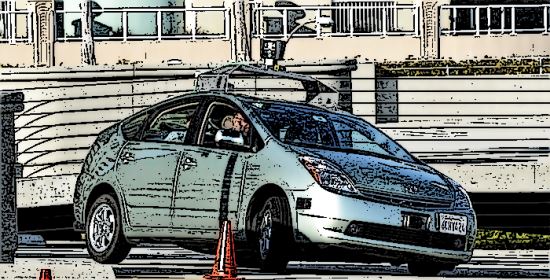Monthly Archives: March 2014
So here’s a sad story that made the rounds a little while back, about a guy whose (alleged) child was put up for adoption without his consent:
An unmarried Utah father whose son was placed for adoption at birth without his knowledge or consent has filed a $130 million federal lawsuit against the biological mother, adoption agency, adoptive parents and attorneys alleging they conspired in an “illegal deceit-ridden infant adoption” that deprived him of his son.
In a complaint filed in U.S. District Court, Jake Strickland alleges the defendants acted in a “clandestine” manner and “essentially kidnapped” his son. It alleges the defendants engaged in racketeering, human trafficking and various kinds of fraud as part of a conspiracy to deprive Strickland of his child.
There is a mechanism to prevent this from happening, as Strickland could have put in a paternity registry claim. Since he did not, the husband of the mother was able to (and required to) sign off on it. If the characterization of events is accurate, it does sound like Strickland was wronged, but he was wronged in a sort of bad-faith way that the law can’t really accommodate for. At least that’s my impression, the court case is still pending.
Given the time and distance since the original adoption, it’s a hard case to make that the child could or should be returned to him. Given the bad faith involved on the part of the mother (at least) it seems more possible that there are some monetary damages to realistically be asked for. I have the vague feeling that we may not be dealing with particularly deep pockets here, however.
A more well-known case involves Dustin Brown, which involved some similar circumstances but also our laws with regard to the tribes:
A four-year-old Cherokee girl known as “Baby Veronica” is with her South Carolina adoptive parents Monday, after a fierce custody battle that raised questions about tribal sovereignty and a federal law meant to help keep Native American tribes together.
The Oklahoma Supreme Court [on September 23, 2013] dissolved a temporary order leaving the child with her biological father, Dustin Brown, a member of the Cherokee nation who had fought the adoption.
“She’s safely in her parents’ arms,” said Jessica Munday, a spokeswoman for Matt and Melanie Capobianco, of Charleston, S.C.
Cherokee Nation spokeswoman Amanda Clinton confirmed that Veronica was handed over to the Capobiancos hours after the Oklahoma Supreme Court lifted the stay. Until the Monday night transfer, the Cherokee Nation had insisted the girl would remain with the tribe.
Indian parents (including fathers) are offered some extra protections due to some ugly history of taking their children from them and handing them over to white folks. In this case, though, the Indian heritage was comparatively minor (Veronica is 3/256th Cherokee). This was a turbulent case insofar as the child was relocated a couple of times as the case worked its way through the court system. Brown (the father) himself has relatively loose Indian heritage, but even that granted him some procedural rights that were not followed. Brown himself messed up by waving paternity rights early on (though in an informal way that wouldn’t be accepted under most circumstances).
This case cluttered up my Facebook feed for a while. For whatever reason, a number of typically apolitical friends took a great interest in the story from the father’s point of view.
All of which serves as reminders for young men to be cognizant of who they are sleeping with, the pregnancies that might result, and the extent to which you can trust this person. And in the absence of such trust, being as diligent as possible about following the pregnancy and asserting what rights you have.
According to University of Texas professor Chandra Bhat, driverless cars may be bad for the environment. To be fair, that has as much to do with headline writers as it does with what Bhat himself has to say in the interview which is more wide-ranging.
On the environmental front, Bhat’s prediction has three components:
- People will start to want a more comfortable or productive workspace in their cars if they’re spending that time relaxing or working instead of driving. This would undo and perhaps reverse the slow and steady progress towards smaller vehicles.
- Since driving will be a less frustrating experience, people will be willing to work further away from home.
- Driverless cars would negate the advantages of public transportation. This one he only hints at.
I think this takes a shorter view of the opportunities that driverless cars represent. As the notion evolves, I think that robocars would actually change the dynamics of car ownership. Most specifically, a lot of people wouldn’t need to own one. Instead it would be Zipcar writ large, except that instead of having to find an available car, the car you need will be able to drive to your curb.
I’d argue that this would more likely enable cars to get smaller, generally, rather than larger. As it stands, we tend to drive cars with excess capacity for those rare times when we need said capacity. All of my cars have had room for four or five even though the vast majority of the time it’s only had one or two people in it. Almost always one until we had the baby. But it sucks to need space and not have it, so you get the larger model. Right now we have a Subaru Forester when for the most part the Camry suits out needs. But the Forester is very helpful for those times when we need the capacity. But if I could call that capacity to my curb whenever I needed it, we could probably do without it. And if I don’t want to own a car, I can get the equivalent of a golf cart for many trips.
More broadly than myself, the vast majority of pickups would become unnecessary. A large number of SUV’s would as well. If we had enough rent-a-rides out there, most vans would become unnecessary as well. We could adjust the vehicle size to our needs rather than having such persistent over-capacity. The economic advantages of small cars wouldn’t change. The big difference would be those who prefer smaller cars because they don’t like driving and parking larger vehicles. I actually fall into this category, but I don’t think it’s all that common. For most people, the equivalent of a passenger’s seat is fine most of the time.
The biggest danger to the environment is, interestingly enough, the logistical improvements. I almost wrote “gas won’t be any cheaper” in the previous paragraph, but it could in the sense that these vehicles will be inherently more fuel efficient and therefore you run into the issue of losing fuel economy gains by driving/riding more miles. This leads into Bhat’s second rationale, which is commute distances.
If robocars can get you there faster, you could well be content having a job further away from work if for no other reason than that it doesn’t take you more time. That you will be able to spend that time relaxing is an added benefit, though it’s one that is easily overstated. If you have a family, time in the car is time away from that family.
A shift away from public transportation would likely occur. Given that we’re talking about the USA, though, it’s not as though public transportation is heavily used anyway. Unlike others, I’m not hugely optimistic that it really will be on any large scale. This is probably why Bhat didn’t emphasize this point.
On the other hand, it would actually capture not only the psychological benefits of public transportation, but also many of the environmental benefits. With cars being on call, we could greatly reduce the amount of parking space required. This would, in turn, make for a greater walking experience. While this wouldn’t do anything to improve the walkability of suburbs with big lawns and whatnot, it might make them less desirable because living near commercial centers would mean a lot less walking along parking lots.
This is all longer term stuff, of course. It would probably take time, or an economic shift or struggle, to make these changes more likely. But I think the environmental impact of robocars would on the net be positive. It’s only a loss if you envision a green future that I think, owing to the most likely circumstances that would necessitate it, is best out of reach.
Chocolate milk was on my shopping list last week. I’ve never been a big chocolate milk person, but when appraising my cereal options, I determined that if I took the healthiest, most sugarless cereal out there and added chocolate milk, not only was it edible but I ended up ahead sugar-wise than if I take the next healthiest option with skim milk.
When I got to the milk aisle, though, I saw something bizarre: Green milk. For St. Paddy’s Day, of course. Vanilla flavored. It looked grotesque. Green milk? Who the hell would drink green milk? Not that there is anything wrong with green beverages. Many of my favorite beverages are green. But the green milk just looked… really weird. I tried, and failed, to imagine what cereal would look like in it.
So of course I bought some.
The results are below. Taste-wise, it wasn’t as good as the chocolate milk but still not too bad. I can’t tell if my mediocre impression of the taste is more related to the fact that milk and vanilla don’t seem to go together, or my own inability to process milk coming in a green color.
 I previously linked to an article about a neurologist who believes ADHD doesn’t exist. Here he is making that argument.
I previously linked to an article about a neurologist who believes ADHD doesn’t exist. Here he is making that argument.
The case for being an early riser. Maureen Mackey argues that employers should encourage napping.
401(k) prospects are actually looking pretty good.
The trials and trevails of trying to legislate social mobility (international edition).
Exploring food truck economics, as well as van-based housing.
Was this man, who was arrested and thrown in jail and then solitary for calling 911 to help someone in an accident, a victim of overaggressive law enforcement, or collateral damage to the San Francisco class wars (in infographic form)? Here’s an infographic and Salon is worried that San Francisco is going to lose its status as a liberal icon.
The Economist has a bullish article on MOOC and the future of education. [more]
Many Americans look approvingly on Germany’s education tracking system, but they’re increasingly controversial over there. Many of us have also looked favorably on their apprenticeship model, which is being increasingly spurned.
I’ve been complimentary of Texas Governor Rick Perry’s attempts at offering cheap college degrees in Texas. Florida, too, is working on the $10,000 degree.
If we’re looking to cut costs at traditional colleges, administration might be a good place to start.
James Samuelson makes the case for standardized tests.
So apparently work habits are pretty much the same across generations (from Boomers to Millenials). I hate it when science ruins perfectly fun and helpful generalizations.
Matt K Lewis defends not working. Why do we work, anyway?
Employers are getting better at measuring the value of workers. This is where the rubber hits the road on productivity measurement goes. A lot of the objections are based on their inaccuracy. What happens when they become accurate?
Jack Baruth explains how corporations increasingly devalue excellence in favor of reliable efficiency. I’d object, but I often see the appeal. For education, I’ve often said, we have to plan for the mediocre or at least middling teacher instead of worrying about the best.
Michigan Governor Rick Snyder is pushing for the sort of regional visas I’ve been talking about. Adam Ozimek says more.
First “North Colorado” and now “West Maryland“?
Liberals like sharing, and New York is liberal, so why does New York hate the sharing economy? Because they love regulation more, evidently.
Peanut butter is the ultimate American food.
A long while back the Discovery Channel had a show about building a giant dome over Houston and another about making New Orleans a floating island. In both cases, to protect these places from nature. One wonders the practicality of even having cities that require such protection. It’s like having major metropolitan areas built around the scarcity of islands and bays on the east and west coasts.
Here’s a way to make a billion dollars:
Corporate money is forever finding new ways to influence government. But Mr. Ackman’s campaign to take this fight “to the end of the earth,” using every weapon in the arsenal that Washington offers in an attempt to bring ruin to one company, is a novel one, fusing the financial markets with the political system. […]
Mr. Ackman is not new to playing chess on a billionaire’s scale. The brash 47-year-old, a graduate of Harvard Business School, built his $12 billion, New York City-based hedge fund, Pershing Square Capital Management, on enormous, risky bets on companies like Jim Beam and Canadian Pacific Rail that earned billions for him and his clients. He has had some big losses too, including an estimated $473 million last August on an investment in J. C. Penney, the struggling retailer.
Regulators frequently get entreaties from financiers urging action for their own financial gain, like the hedge fund executives who in 2010 tried to secretly push Obama administration officials to investigate for-profit colleges, again citing fraudulent industry practices, after betting that their stocks would decline.
But Mr. Ackman’s efforts illustrate how Washington is increasingly becoming a battleground of Wall Street’s financial titans, whose interest in influencing public policy is driven primarily by a desire for profit — part of an expanding practice in the nation’s capital, with corporations, law firms and lobbying practices establishing political intelligence units to gather news they can trade on.
Vikram Bath focuses on the question of whether or not such actions are even wrong (or whether we can presume them to be), but I’m more interested in the NYT focus of money in politics.
Critics of money in politics often make it sound like it’s about “buying elections.” It has a ring of truth insofar as money is a necessary (though not sufficient) component of winning elections, but because the money is necessary and not sufficient that only takes you so far. I don’t worry about people buying elections because ultimately the electorate votes for what it wants and the history of losing candidates with winning war chests is very long.
No, what I worry about is money buying the office holders after they win. Ackman is lobbying. Herbalife is lobbying. Unlike an election, where my input is solicited (on however minor a scale), the Herbalife situation is one that I would know next to nothing about if not for this article. But it matters in the seven to ten digits to the involved players. At least this case involves a billionaire going up against somebody with some money to fight back, but that’s not always the case.
I’d argue that the problem is actually more insidious than that, though. Ultimately, when it’s the wealthy that have congress’s ear, even if everybody is acting entirely on good faith, the perspective of all involved is going to be skewed towards those talking to him. Even advocacy for the less fortunate is more likely than not going to be from someone looking down at them with concern from on high.
Perhaps most concerningly, this is a problem (or a series of problems) for which there are very few solutions. In this case, the money isn’t just going to the coffers of politicians but also activist groups themselves. And at the end of the day, you can’t stop a millionaire from speaking his mind.
I don’t typically sweat the wealth of the wealthy too much. I don’t view the money they have as being money that would be better spent if it were in someone else’s pockets (though, obviously, they gotta pay their taxes, too). But their are an awful lot of zero-sums expression of their wealth that do leave me concerned. Political influence is definitely one of them.
I typically listen to audiobooks throughout the day as I take care of various household chores. Lately, I’ve been watching a TV show that I will not name to avoid spoilers.
The video player on my phone is not as good as the audiobook player, so mistakes periodically happen. For example, it’ll lose its place. Also, I have been known to accidentally fast-forward due to the placement of the scroll bar. Normally this is not a problem, but I got a double wammy today, while watching the last episode of the program. As in, the last episode ever made where everything gets resolved.
In the first case, over a span of three seconds I found out that the lead character is killed, that his wife made it happen, and why she did it. In three seconds.
In a second case, I discovered that one character leaves another character. Again: Three seconds. If that.
The first hurts more than the second, but over the entirety of listening to TV shows (and watching at points) this has only happened three times. Two of which, of course, involved devastating spoilers. The other involved someone telling the main character that he would absolutely take care of it (fortunately, without a hint of what “it” was.
Twitter spambots are magical. They bring the dead back to life.
Shesahomewrecker.com is problematic on at least three levels that I can think of immediately. Could be mistaken, could be a baseless vendetta, and when true the blame does not fall on a single party. That’s just off the top of my head.
Some ladies are trying to close Wikipedia’s gender gap, which is a worthwhile goal. I’m curious what they mean by Wikipedia’s “masculine design”, however.
Meanwhile, Wikipedia is more generally having an editor retention problem.
Is the middle class being hollowed out due to a class war on the part of the wealthy? Or is it really about job polarization? Or both at once? James Joyner has more.
Michael Corwin talks about being a political PI while Jason Edwards Harrington talks about being a TSA agent. [More]
Apparently, the northeast is neurotic.
Bill Parks argues that California is the model for corporate tax reform.
It’s official: comedians are psychotic. The link comes from my friend Tony, who is trying to make it as a standup comedian, and who is probably psychotic. (Not really.)
How long does it take for a tragedy to become funny? Above five weeks.
It is not, in fact, hip to be square.
A realistic statue of a man walking around in his briefs freaked Wellesley out.
Here is a “Greatest Hits” of Huckabee that was produced in 2007:
Here is Huckabee commenting on the emerging situation in the Ukraine:
Is it me, or has his accent significantly dimished? Between that and his physical changes (aging and weight gain) he’s not all that instantly recognizable.
For the record, I don’t care if he has tried to minimize his accent so that he can be better understood, is taken more seriously, or will be a more viable presidential candidate than he otherwise would be. My own accent, or lack thereof, is variable. I just find it interesting, if I’m not imagining it.
 Third-hand smoke exposure is just as deadly as smoking! Ack! Except that it’s not, of course, and eventually making everything as dangerous as smoking makes smoking actually look less dangerous (if anyone actually believed it).
Third-hand smoke exposure is just as deadly as smoking! Ack! Except that it’s not, of course, and eventually making everything as dangerous as smoking makes smoking actually look less dangerous (if anyone actually believed it).
Science, health and the human mind are funny things. The power of placebo.
Ack! Some crocodiles can climb trees!
NIMBYism is trying to kill housing in Evanston, Illinois, due to fear of transient academics.
A builder in Portland found it easier to build affordable housing without public funding (other than some waivers) than with the strings attached to public funding.
Maybe in the future, houses will be built in 24 hours by 3D printers.
Is your job in another state? Click here to find out!
You might be able to find a job in a lot of places (or a job that goes a lot of places), if you’re a clown, because there’s a shortage.
While raising the minimum wage will hurt McDonald’s, it’ll just be replaced by something else. The shift towards upscale has its own concerns, though.
Ryan Noonan, formerly of Ordinary Times, co-wrote an interesting paper on manufacturing wages.
According to new research from the Federal Reserve Bank of Atlanta, extended unemployment benefits boosted our jobless numbers.
The dumb rubes in the working class aren’t the ones driving our political polarization. It’s folks who have education and income.
We think of The Big Sort as ideology determining geology. But what if it’s the other way around? I actually notice a tendency among optimistic ideologues who believe that people who relocate will absorb the politics of where they move to but then argue that the ideology of the places will shift as people move to it. There’s some truth to both of these things, but not in a predictable sort of way that justifies ideological optimism.
Last October we were expecting to hear a round of regulations that would determine the brave new frontier of vaping, but nothing game. It’s expected that it will come soon. Ordinarily, I’d fear the silence. In this case, though, I wonder if longer isn’t a little bit better. It all depends. At this point I believe the facts are on the side of less regulation and more thought out regulations will be more measured, though it seems a bit like the anti-vaping crusaders are gaining some traction.
Megan McArdle wrote a reasonably good piece on ecigarettes. In which she speaks to the fear:
As nothing but a replacement product for existing smokers, e-cigarettes seem like a public-health win. Widespread adoption by current smokers “could potentially reduce smoking deaths by more than 90 percent,” says Joel Nitzkin, a public-health physician who is a senior fellow at free-market think tank R Street in Washington.
But what if current smokers aren’t the only people who use them? What if e-cigarettes lure back people who used to smoke or attract new smokers? What if people who otherwise would have quit keep using nicotine? And perhaps the No. 1 argument: What if e-cigarettes make smoking normal again in public places, with the attendant annoyance of a neighbor or officemate blowing nicotine-laced steam everywhere?
What is really frustrating is that we don’t know. As important as anything, we don’t even know if there will be much wrong with people choosing to vape. Almost all of the anti-vaping sentiment is based on potential and hypothetical dangers. Well, it’s hard to argue with potential and hypothetical. It’s hard to argue with the notion that vaping may be dangerous, because it’s hard to prove a negative. Tests on propylene glycol, one of the chief ingredients of the eliquid, have been performed because that’s what they use for theatrical fog, and it was found to be safe. They have tested this stuff on animals saturated 24/7 for extended periods of time (eighteen months) and they found minimal consequences (reversible dehydration of the nasal and ocular areas). The head of the FDA himself has said that nicotine addicts you and tar kills you. Ecigarettes do not have tar.
I have previously expressed some skepticism of the health consequences of these things, taking the middle ground that while they’re not nearly as dangerous as the critics claim they’re probably not as safe as the advocates say. The more I’ve read, though, the more confident I am that the health threat is likely very minor to non-existent. The advocates’ claims are based on study after study after study, while the opponents claims are based on hypotheticals. Not even hypothetical models, but vague statements about what we don’t know.
Which brings us to the next argument, which is that it will prevent people from quitting smoking or quitting nicotine. In the case of the latter, if the health risks are so marginal, should we really care? In the case of the former, that could be bad, save that there is no real reason for it to be true. According to a UK study (STS140122) on cigarette, ecigarette, and NRT (nicotine replacement therapy – the gum or patch), “There is no evidence that electronic cigarettes are undermining motivation to quit or reduction in smoking prevalence.”
It goes on to say: “Use of e-cigarettes by never smokers or long-term ex-smokers is extremely rare.”
It does not provide any data on people starting with ecigarettes and moving to the regular kind, which is another concern (supported by hypotheticals). Speaking from a personal perspective, once you’re using ecigarettes and get the regular cigarettes out of your system, the latter becomes superfluous. I can quite honestly say that I have no desire to pick up a real cigarette at all. What I’m doing now isn’t just healthy, it’s more enjoyable. Vaping offers advantages that smoking can’t match. Including, I should add, the very flavoring that the anti-vaping advocates want to ban. Not to mention the ability to do it in more places, though right or wrong anti-smoking crusaders are going after that, too.
In other words, due to their anti-smoking zeal, they are methodically trying to reduce incentives to take advantage of an amazing new tool to help people quit. Even if they don’t quit the vaping, they’re still ahead. Arguments otherwise assume that if they can’t vape they will quit For Real. They remind me of my father who, on finding out that I had indeed quit smoking entirely and was now vaping, wondered if I could just quit without vaping. The last eight years of my life indicate otherwise. Strongly.
And on a more personal level, by god I have found something that works for me. Not just because I don’t smoke anymore, but because it allows me the ability to continue to do the things that drew me to smoking in the first place. I may quit the ecigarettes or I may not. But I have finally found myself not having to obsess over this question. Do you know how amazing that is? A world has been lifted from my shoulders. The monkey that has been on my back for years and years is gone. At worse, replaced by something by all measures benign by comparison. It makes me want to kiss the skies. And it makes me furious at those who see this as some nefarious new threat to the public health.
Right now I am just waiting to find out how bad it’s going to be. Whether the thing that right now costs me twenty-five cents a milliliter will shoot up to seventy-five cents (a very real possibility). Whether the people I get my supply from will be allowed to remain in business. Whether I am going to have to throw everything out and start all over with an FDA-approved device. I’m concerned about the number of people out there who could take the same path as I did to recovery, but as much as anything I just want to keep doing the thing that has put more distance between me and cigarettes than I have had in over ten years. Or whether it will be made more complicated and disrupted with right-now unthinkable consequences. In the name of public health. In the name of my own well-being.
(more…)



